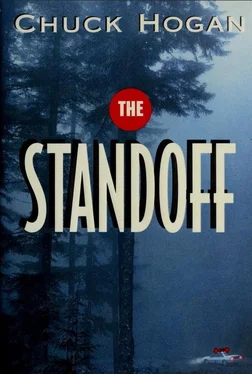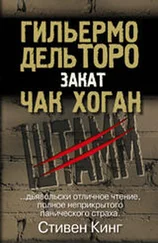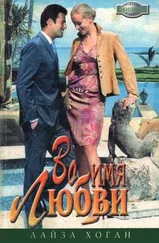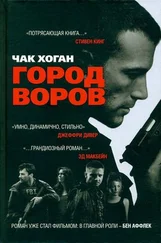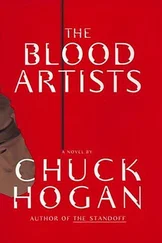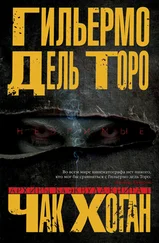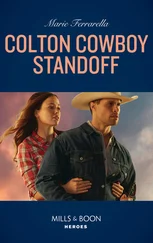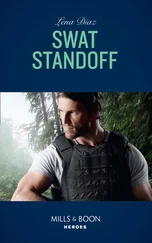He glanced about the tent. This was progress, solid progress, the preliminary pawn-takes-pawn, slow-dance maneuvering finally paying off. Banish paced. He told himself to be patient. There would be no sleep for him again that night, too many things to think about, to review, to prepare. Too many loose ends to consider. He had to get out of these tents. He needed to get out into the open air and settle his head.
He caught Fagin as he was leaving. “Send someone over to suit me up,” he said. “I’m going to sit out a watch tonight.”
Banish crouched on his knees in a gully thirty-five yards below the cabin. The stadium lights were all off now, a single searchlight trawling the patchwork of pitted scrap wood in the distance, illuminating in roving circular sections the lopsided cabin that was the focus of all their attention. The refuse of their few days there — the bullet casings, half-devoured dog carcasses, tree limbs, the phone — littered the thinning, sloping land in between.
He turned and sat against the dirt wall with his back to the cabin. His radio and a 7mm Remington rifle were on the ground by his side. There had been no cure for the problem of the decomposing dogs — what the coyotes had not already torn off and taken away only a treatment, and Banish decided he needed more of it. He brought out the small glass jar of Vicks VapoRub and smeared himself a generous gel mustache over the greasepaint camouflaging his face.
He was positioned behind and to the left of the loudspeaker. The pleading voices he heard seemed to come from ghosts deep within the trees.
Margie. It’s mother. Your father’s here with me, we’re both praying for you. Margie — enough is enough. Glenn, you too. Just come down now. There’s no point to this anymore. We’ve got four beautiful grandchildren, including little Amos we’ve never even seen. There’s nowhere you can all go, and now your father and me can’t imagine what you’re up there waiting for. The babies’ lives are in your hands. Just come to your senses, all of you. For their sakes. You need to keep them safe now. Then we can make funeral arrangements for Judith.
Silence then. Banish heard a helicopter approaching over the trees.
Marjorie. It’s your father. Come home.
The Huey roared low, ripping apart the thin air overhead and rumbling the ground. Dead leaves fluttered and fell in dozens and the treetops wagged in its wake.
Kearney appeared standing at the top of the opposite side of the gully. His face was obscured by greasepaint and he wore a borrowed, loose-fitting camouflage jumpsuit, vest, cap. Banish looked up at him from where he was seated. Kearney said “You wanted to see me?” with affected toughness, but it was plain to Banish that Kearney was more than a little nervous.
Banish told him, “You’d better come down from there.”
Kearney looked up to the cabin and saw that he was well within the line of fire. He dropped down into the gully, and after a moment of standing there, squatted down and sat back against the dirt wall opposite Banish. From there he looked around. His lips came out a bit and his brow furrowed.
“Dead dogs,” Banish said, tossing him the Vicks. Kearney looked at the small jar with suspicion. He unscrewed the cap and sniffed, the folds in his brow evening out. “Under your nose,” Banish said. Kearney pulled off a glove and began to apply it. Banish said, “How long have you been married?”
Kearney’s eyes shot to the gold band on his bare finger but he managed to check his overall response.
“Almost a year now,” he admitted.
“No kids?”
Kearney shook his head. “One on the way.”
“You hid that ring when I had you in formation.”
“Yes, sir.”
Banish nodded. “Maybe you see why I did that now. This is no, place for a man with a wife and children.”
“Yes, sir.”
“But you wanted to be a part of things,” Banish said. “Nothing would have kept you away.”
“I guess that’s so, sir.”
Banish looked at him, nodding. “Why do you think I selected you? Out of all those others.”
Kearney said, “I don’t know, sir.”
“Do you think it was anything more than an efficient way of paring down the number of men?”
Kearney looked at him a while. “I guess I don’t really know, sir.”
Banish slipped deeper into thought. Another disembodied voice in the woods pled with the cabin. Banish looked up and down the darkened gully. “This is where the dead marshal was posted before he was shot.”
Kearney regarded the gully solemnly and set down the jar of Vicks, his white eyes showing respect.
Banish set himself as comfortably as he could against the hard dirt wall. “There’s an old FBI tradition,” he said, “on a surveillance, of telling stories. When I first came up, it was Hoover stories. Everybody had one. J. Edgar Hoover was an idiosyncratic man, he never married, and his assistant, a non agent named Clyde Tolson — well, they were pretty tight. So there was talk. The kind of stories you could only tell to a fellow agent, because if you talked to anybody on the outside, next week your name could wind up on a list in somebody’s drawer.”
Banish folded his arms across his vest. “I was the most successful hostage negotiator of my time. I held the position of Chief Hostage Negotiator for the New York City FBI Field Office from 1979 to 1990. In those eleven and a half years I never once lost a hostage, never once failed to effect a resolution. How? Negotiation. Deception. Intimidation. Things I am not now very proud of. My most effective tactic, the one in certain circles I’m probably best known for, was to bring to the scene the wife, mother, child, whatever — some close relative of the hostage-taker — get some personal information from them, and then go to the phone and make veiled indications to the suspect about what might happen to his family if he didn’t give himself up. “Whatever it takes’ was my motto. He takes a hostage, you take a hostage. By any means necessary.
“I was a hotshot and I got results, and that was all anybody cared about. Nobody questioned it, least of all me. Nothing else mattered so long as the job got done. And I was a pretty good drinker those days. Never on the job, always after. Interesting thing about a hostage situation: you can never walk away cold. There’s a downtime afterward when you have to get together with the other men involved and toss back a few, to relieve that tension, that adrenaline, whatever it is, to flush it out of your system for good. Primitive therapy, but absolutely necessary, because there is no one else you can share it with except those who went through it with you. Not your wife. Not your kids, your clergyman. And that was when I really held court. Those were exciting times — heady — and I guess I came to live for them, situation after situation, triumph after triumph. Like a drug, over and over. I was at the top of my game then. In other words, I was pretty well primed for a long fall.” He nodded, surprising even himself with his candor. It relaxed him to tell it. Didn’t it all seem so clear to him now. “Ever heard of the World Trade Center?” he said.
Kearney nodded. “Seen pictures. Where that bomb went off in New York City.”
“This was almost three years before that. A huge place it is, with two zip codes of its own, millions of people passing through it every week. A large complex of buildings and tunnels and walkways. This was at the World Financial Center, which is part of the complex but separate from the twin towers. Tuesday night late in June. Raining hard, I remember, because this was lower Manhattan down near the Hudson, and Vesey Street was flooded and shiny black when we pulled up outside.
Читать дальше
